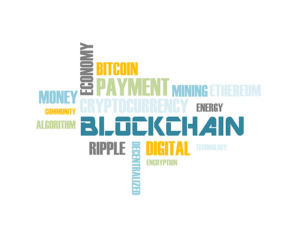The Bank: Banks on whom you can never bank
I am inspired to write this post because of my latest skirmish with my bank. I will narrate my experience briefly as I believe this may be your story also. Every month I pay Rs 15000 as insurance premium to one of the leading insurance companies based in Mumbai which goes by the name of its owner’s late father.
The policy is in the name of my daughter and the premium becomes due on the 10th of every month. The reason, I chose the 10th of the month is because by that time you have settled all your dues like Monthly grocery bill, Doodh Wala payment, Newspaper payment, Rent, Tuition fees, Housing loan EMI, etc. Insurance also is something which always scores low on your priority.
Few Banking terms which I am learning gradually

My insurance company every month presents a cheque to my bank through ECS. ECS stands for Electronic Clearing service. It is an electronic mode of funds transfer from one bank account to another bank account. Now the bank linked to the ECS mandate is a bank where I used to have my salary account. But men in the corporate industry believe in polygamy. They never stick to one company and keep hopping jobs. I am also one of them.
My salary account currently is in a different bank as I have hopped two jobs in between. But since the Insurance premium is linked to my earlier bank, I maintain a minimum balance in it. To be honest I don’t know why the money banks insist on maintaining Rs 10000/- minimum or otherwise they charge a penalty. Maybe this is a good way of Banking Industry to inculcate the habit of savings in middle-class families. So, if a working person has 5-6 different savings account he will have to maintain a minimum of Rs 10000 in each. Therefore the economy saves Rs 60000 which is dormant money. Anyway, the PSU banks don’t insist on it but the private banks do.
The flow cycle of money in the bank

Every month, I transfer Rs 15000 in my earlier bank by the 8th of the month so as to settle the Insurance premium. But once in a while we humans also fail. This month, I forgot to transfer the said amount and by the time I realise it was 10th of the month. I immediately transferred the money in the morning.
As luck would happen, my Insurance company presented the premium cheque through ECS on the 10th but a bit earlier. My funds had not reached the account by that time as they got stuck in a traffic jam. Therefore, my bank returned it saying “Insufficient Funds”. I immediately got a notification from the bank on my phone. It was not a very sweet message as it said that the cheque has been returned. And that a levy of Rs 590 has been charged to me for keeping insufficient funds. I couldn’t understand the meaning of a term called NACH Return charges in the SMS. I logged onto my internet banking and found the same mentioned. Like an honest tax paying citizen, I paid the insurance premium online in a weeks’ time.
The Call Center Experience

But my Insurance company is run by Robots. They sent me an automated mail saying that since my bank had declined the payment, they will attempt presenting the cheque again within 10 days. In between, I had already cleared the premium online. Now at the Insurance company, nobody checks that the premium has been made. As it happens with the poor middle class like us! The Insurance company presented the cheque again and this time it bounced again. And again, my cell phone was invaded by this sms from the bank saying Rs 590 deducted on account of Nach Return charges.
I immediately called the call center of the Insurance company as I had lost Rs 1180/- for no rhyme or reason. Most of the time all my calls made to call centers are recorded for training and quality purposes as I am one of the most learned guys in the country.
After pressing my cellphone keys 4-5 times, guided by the voice mail service, I could reach a human voice. It sounded like the voice of an Angel though with a Marathi accent. She kept listening to my problem for 10 minutes and realised that it was beyond her scope. She transferred me to another colleague of hers. This time I sounded like a voice mail recorder to them as I narrated the entire story to him in the same mundane fashion. I threatened them that if they don’t compensate me for the loss of Rs 590 which happened purely because of their wrongfully representing the cheque, I will cancel the insurance policy.
The Over-Courteous Call Center Executives

One thing good about these call center employees is that they tend to be extra courteous by making statements like “Sorry for asking the question but I need to know your date of birth for verification” or “Sorry to keep you waiting”. Even a question has a very courteous tone “ With your permission can I transfer your line to another person”. They normally end up saying “Thank you for calling XYZ Company. I hope you are satisfied with our answer”. In this entire “Quora kind of questioning the only thing you forget in the end is what was your query?
The reply from my Insurance company was very run-of-the-mill kinds. They gave me a complaint number and said that it will be resolved in 48 hours. Yes! It was resolved in 48 hours but how? I got a standard e-mail saying that if the cheque has bounced once, it will be presented in the next 10 days and this was communicated to me at the beginning. So the fault is mine. And after that, I was flooded with 20 self-appreciated messages from the Insurance company that my issue has been resolved.
Cutting the story short, I went to my earlier bank and closed the account.
Why do banks charge their customers so much

Let’s understand how do Banks make money? Banks take short term deposits from savers (You can count your savings account in that) and give them out to borrowers for longer terms on higher interest. The difference in the interest they pay you and the interest they earn is their income. There is a much more complex way also of making money like pooling the assets and selling it to investors. But I will stick to the basics.
The global scenario of the bank

Banks in the US are highly profitable. The 1st Quarter i.e. Jan-Mar 2019 results of the top 5 US banks are:
- JP Morgan Chase reported a net profit of US $9.20 billion in Jan-Mar 2019 quarter. Wow!
- Bank of America reported a net income of US $ 7.30 billion primarily driven by lending.
- Citigroup reported a profit of US $ 4.70 billion.
- Wells Fargo reported an income of US$ 5.90 billion.
- Goldman Sachs only reported a fall but still, the profits were the US $ 2.20 billion.
The Indian Bank
- PNB lost an amount to Nirav Modi similar to Goldman Sachs made in profits, in the 1st Quarter of 2019.
- IDBI and a consortium of banks have an exposure of Rs 9800 crores to Jaypee Infratech now referred to NCLT (I am also one of those unlucky ones who has booked an apartment in Jaypee).
- SBI, Bank of India and Bank of Baroda have the highest exposure to the now defunct ILFS (Infrastructure Leasing and Finance). ILFS owes Indian PSU and Private sector Banks an amount of Rs 20,000 crores.
- The grounded Jet Airways owns Rs 7250 crores to the domestic banks including SBI, BOI, IDBI, ICICI and many more.
Indian Banks are like Robin Hood but play a reverse role. They loot the common man and serve the rich like Nirav Modi, Vijay Mallya, Manoj Gaur of JP, Naresh Goyal of Jet Airways. Naresh Goyal, who couldn’t fly his grounded Jet Airways to flee out of the country, had to fly Emirates. The poor man who didn’t pay salaries to some 16000 employees could only afford the first class tickets of Emirates (Meant only for the super rich).
How the bank treat the middle class?

- You miss 1 EMI of your housing loan you will be fined. If you don’t pay EMI for 90 days you’re your account will be classified as NPA or Non-performing asset.
- A cheque issued by you to a third party is refused by your bank due to insufficient funds, you are charged Rs 590. (This is what triggered this story).
- Your bank keeps charging you for all the sms alert they send irrespective of whether you need them or not.
- The moment the funds in your bank are below the danger level Rs 10000 in most banks (can be lower in PSU banks), you are charged a penalty.
- In the case of some 30000 home-buyers who have booked an apartment in Jaypee Group, Noida, the poor middle class has to keep paying the housing EMI. The apartment they booked in 2009-2010 though is nowhere in the sight. Same is the case with thousands of buyers of Amrapali, Unitech, Supertech and many more real estate group.
- The interest rates go up! Your EMI will go up automatically. Interest rates goes down. The EMI will only come down if you make a payment to the bank. Then why do Banks call it a floating rate interest EMI?
In the end, my request to the banks is that you may keep charging the hapless middle class the way you want but at least don’t lose this hard earned money to Corporate who take you for a ride. Chanda Kochhar of ICICI bank has still not been able to come out clean in the Loan scam to Videocon Group. There is a moral there. Learn it fast!
Incidentally NACH means National Automated Clearing House. It has now replaced ECS which stands for Electronic Clearing House in the banking parley.
Read more such interesting posts. Click on the link below:
Customer Delight: Bringing smile on your customers face
Salary and Expenses:Two sides of the same coin












Comments
2 Comments
There’s an old adage…If you owe the bank $100 that’s your problem. If you owe the bank $100 million, that’s the bank’s problem. The rot runs deep in Indian banking system. The unholy nexus between banks, corporates and political power is the bane of the economy.
Very True Naresh.
Leave a Comment